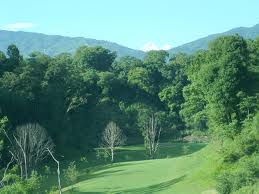What Is Eco-Tourism?
As the new millennium unfolds, we are becoming increasingly aware of the finite, interconnected and precious nature of our planet home. Likewise, tourism is becoming an increasingly popular expression of this awareness. With advances in transportation and information technology, ever more remote areas of the earth are coming within reach of the traveler. In fact, tourism is now the world's largest industry, with nature tourism the fastest growing segment.
In response to this increasing appreciation of nature experiences, a new travel ethic has arisen which is now called ecotourism. This term has become increasingly popular in both conservation and travel circles.
Eco-tourism means 'Environmentally responsible travel to natural areas, in order to enjoy and appreciate nature (and accompanying cultural features, both past and present) that promote conservation, have a low visitor impact and provide for beneficially active socio-economic involvement of local peoples.'
Eco-tourism
In terms of eco-tourism potential, Nepal is blessed with prosperous and diverse vegetations, culture, beautiful and varied landscapes and as such destinations are going to be the top eco-tourism destinations in few years, opportunities abound Nepal for developing eco-tourism products, tour and trekking packages, climbing and expedition packages, adventurous sports, cultural festivals, accommodations, guiding services, transportation and to other indirectly benefited areas too.
Until now, despite the potential, eco-tourism has not developed and the number of eco-tourist arrivals in Nepal has not reached an optimum because priority is still given to tourist destinations which already attract the bigger portions of the market. Despite the challenges, the potential for eco-tourism in Nepal is very minimally realized or still unrealized but, for the time being, in judging the success of eco-tourism, it is the quality impact achieved that is more important than the quantity figures. The situation is going to be changed in the near future, and Nepalese eco-tourism industrialists should always be optimistic on eco-tourism and sustainable tourism. Nepal is going to be the best destination in the world for eco-tourism very soon.
Eco Vacations & Eco Tourism "Responsible travel to natural areas that conserves the environment and improves the well-being of local people� is the definition and principles established by The International Eco tourism Society (TIES) in 1990. Eco tourism has become a major industry in Nepal thanks to the ecologically, socially conscious individuals. If you believe in sustainable tourism, minimizing impact, environment and cultural awareness, financial benefits and empowerment for local people, then eco-tourism is the way to go for you.
AS ICSD is a non-profitable. Non political social development organization which is running a tourism promoting campaign in order to promote tourism. As major industry for national economy. ICSD is also concerned with the field of ecotourism for sustainable development thorough exploring and concerning biodiversity.
Nepal possess an area of just 147,181 sq km. (a mere 0% of the world's total land mass), nevertheless accounts for over 2% of world’s flavoring plants about 8% of the world’s bird species and over 4% of the world’s mammal species. It has also an significant number value for Reptiles, Amphibians, Pisces and other species yet to be identified. Nepal is undoubtedly a biological (as well as a cultural) hotspot that deserves special attention. As biodiversity is responsible for providing essential functions and scenic's that directly improve human life such as medicine, clothing and industrial products and the vast majority of foods derived from maternally occurring species. In addition species are the key working parts of natural ecosystems. They are responsible for maintenance of the gases composition of the atmosphere, regulation of the global climate generation and maintenance of soils, reacting of nutrients and waste product and others lot’s of factor. Ecosystems surely would not function if all species were lost although it is unclear just how many species are necessary for an ecosystem to function properly. So, ICSD will be playing its vital role in order to exploring and conserving the biodiversity eco-tourism through tourism promoting campaign.




Comments
Post a Comment